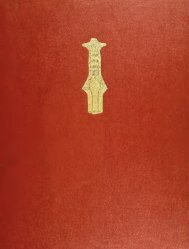What is History / by Edward Hallett Carr - Universal History Library
What is History / by Edward Hallett Carr - Universal History Library
What is History / by Edward Hallett Carr - Universal History Library
You also want an ePaper? Increase the reach of your titles
YUMPU automatically turns print PDFs into web optimized ePapers that Google loves.
WHAT IS HISTORY<br />
Croce began to have a considerable vogue in France and Great Britain. Th<strong>is</strong> was not<br />
perhaps because Croce was a subtler thinker or a better styl<strong>is</strong>t than h<strong>is</strong> German<br />
predecessors, but because, after the First World War, the facts seemed to smile on us less<br />
propitiously than in the years before 1914, and we were therefore more accessible to a<br />
philosophy which sought to dimin<strong>is</strong>h their prestige. Croce was an important influence on<br />
the Oxford philosopher and h<strong>is</strong>torian Collingwood, the only Brit<strong>is</strong>h thinker in the present<br />
century who has made a serious contribution to the philosophy of h<strong>is</strong>tory. He did not live<br />
to write the systematic treat<strong>is</strong>e he had planned; but h<strong>is</strong> publ<strong>is</strong>hed and unpubl<strong>is</strong>hed papers<br />
on the subject were collected after h<strong>is</strong> death in a volume entitled The Idea of H<strong>is</strong>tory,<br />
which appeared in 1945·<br />
The views of Collingwood can be summarized as follows. The philosophy of h<strong>is</strong>tory <strong>is</strong><br />
concerned neither with 'the past <strong>by</strong> itself' nor with 'the h<strong>is</strong>torian's thought about it <strong>by</strong><br />
itself', but with 'the two things in their mutual relations'. (Th<strong>is</strong> dictum reflects the two<br />
current meanings of the word 'h<strong>is</strong>tory' - the inquiry conducted <strong>by</strong> the h<strong>is</strong>torian and the<br />
series of past events into which he inquires.) 'The past which a h<strong>is</strong>torian studies <strong>is</strong> not a<br />
dead past, but a past which in some sense <strong>is</strong> still living in the present.' But a past act <strong>is</strong><br />
dead, i.e. meaningless to the h<strong>is</strong>torian, unless he can understand the thought that lay<br />
behind it. Hence 'all h<strong>is</strong>tory <strong>is</strong> the h<strong>is</strong>tory of thought', and 'h<strong>is</strong>tory <strong>is</strong> the re-enactment in<br />
the h<strong>is</strong>torian's mind of the thought whose h<strong>is</strong>tory he <strong>is</strong> studying'. The reconstitution of the<br />
past in the h<strong>is</strong>tory,', mind <strong>is</strong> dependent on empirical evidence. But it <strong>is</strong> not in itself an<br />
empirical process, and cannot cons<strong>is</strong>t in a mere recital of facts. On the contrary, the<br />
process of reconstitution governs the selection and interpretation of the facts : th<strong>is</strong>, indeed,<br />
<strong>is</strong> what makes them h<strong>is</strong>torical facts. ' H<strong>is</strong>tory', says Professor Oakeshott, who on th<strong>is</strong> point<br />
stands near to Collingwood, ‘<strong>is</strong> the h<strong>is</strong>torian's experience. It <strong>is</strong> " made " <strong>by</strong> nobody save<br />
the h<strong>is</strong>torian: to write h<strong>is</strong>tory <strong>is</strong> the only way of making'.<br />
Th<strong>is</strong> searching critique, though it may call for some serious reservations, brings to light<br />
certain neglected truths. In the first place, the faces of h<strong>is</strong>tory never come to us 'pure',<br />
since they do not and cannot ex<strong>is</strong>t in a pure form: they are always refracted through the<br />
mind of the recorder. It follows that when we take up a work of h<strong>is</strong>tory, our first concern<br />
should be not with the facts which it contains but with the h<strong>is</strong>torian who wrote it. Let me<br />
take as an example the great h<strong>is</strong>torian in whose honour and in whose name these lectures<br />
were founded. G. M. Trevelyan, as he tells us in h<strong>is</strong> autobiography, was 'brought up at<br />
home on a somewhat exuberantly Whig tradition and he would not, I hope, d<strong>is</strong>claim the<br />
title if I described him as the last and not the least of the great Engl<strong>is</strong>h liberal h<strong>is</strong>torians of<br />
the Whig tradition. It <strong>is</strong> not for nothing that he traces back h<strong>is</strong> family tree, through the<br />
file:///C|/Documents and Settings/Vidula/Local Settings/Temp/Rar$EX00.750/carr.htm (11 of 97)7/20/2006 11:28:45 AM







